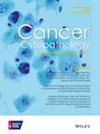How the Milan System for Reporting Salivary Gland Cytopathology works in cytopathology practice: Meta-analysis of prospective studies and comparison with retrospective studies
Abstract
Background
The Milan System for Reporting Salivary Gland Cytopathology (MSRSGC) is widely accepted and endorsed by professional societies. Although several studies focusing on the MSRSGC have been published, few have been prospective studies. The objective of this study was to evaluate the effectiveness of the MSRSGC in cytopathology practice.
Methods
A comprehensive literature search was conducted to identify all prospective studies on the MSRSGC. The risk of malignancy (ROM), risk of neoplasm, and diagnostic accuracy for each diagnostic category were calculated. Data were tabulated in Microsoft Excel, and analyses were performed with the Open Meta-Analyst program.
Results
Seven prospective and seven retrospective studies were identified. The total number of fine-needle aspirations (FNAs) was 1587 in the prospective studies and 1764 in the retrospective studies. The ROM values for the nondiagnostic, nonneoplastic, atypia of undetermined significance, benign neoplasm, salivary gland neoplasm of uncertain malignant potential, suspicious for malignancy, and malignant categories in prospective versus retrospective studies were 21.0% versus 26.6%, 9.4% versus 8.1%, 34.9% versus 39.6%, 2.4% versus 2.1%, 36.6% versus 31.2%, 86.0% versus 66.0%, and 97.0% versus 96.7%, respectively. Sensitivities, specificities, and diagnostic odds ratios were 83.1% (95% confidence interval [CI], 71.1%–90.8%) versus 89.1% (95% CI, 83.6%–92.9%), 98.4% (95% CI, 96.6%–99.3%) versus 94.9% (95% CI, 91.9%–96.9%), and 310.7 (95% CI, 121.2–796.6) versus 218.8 (95% CI, 107.3–438.1).
Conclusions
This meta-analysis indicated that the MSRSGC works well in FNA cytopathology practice and improves diagnostic accuracy in all diagnostic categories. The ROMs of prospective studies were in concordance with the MSRSGC reference values.


 求助内容:
求助内容: 应助结果提醒方式:
应助结果提醒方式:


